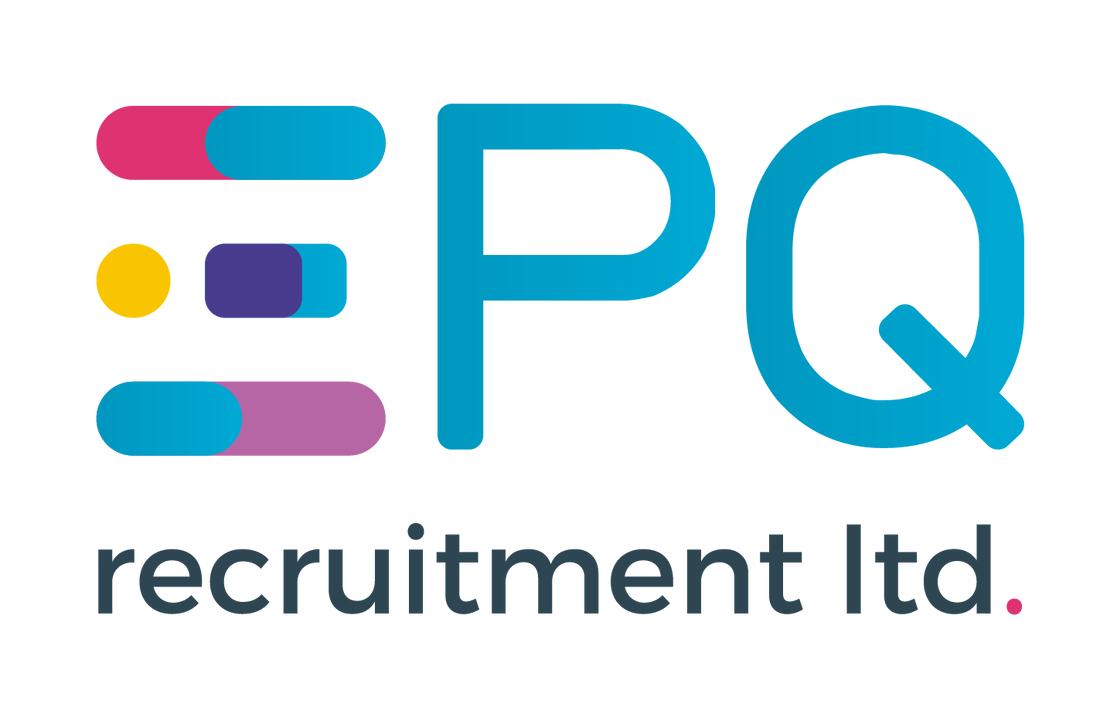|
Gone are the days when it was just traditional industries or large organisations that are choosing the apprenticeship route. Small/start-up businesses are now finding it a useful way to recruit and train staff. Apprenticeships now cover more than 170 industries and 1,500 job roles from entry to degree level - so if you’ve been toying with the idea of taking on an apprentice, here’s the breakdown on why we think it’ll benefit your business:
1. Bringing a breath of fresh air to your business Introducing new, youthful talent to your business can add a whole new dimension to your workplace, bringing with it a fresh outlook and new proposals This in turn can encourage existing employees and spark a boost in overall business productivity. 2. Motivation Theres no-one more ready-to-go than a fresh apprentice wanting to learn about the industry. They’re intrigued, engaged and ready to conquer all at maximum effort levels. 3. Expand and upskill your workforce What better way to channel or your knowledge and skills? Passing it on to someone else. You’d be able to simply transfer all you know and build up the most knowledgeable worker in the long run. 4. Adapt their training Apprenticeships can be tailored to specific job roles, making them flexible to the needs of your business. The added advantage is that you will effectively train a new employee to think and act in the interests of your business from day one, knowing that they haven’t already picked up any bad practice from another employer. 5. Future-proof your business Apprenticeships provide you with the skilled workers you need for the future. Therefore, in times to come, you’re assured you have a well-rounded employee you can rely on. 6. Cost effective Hiring an apprentice is a cost-effective way to support the development of new skills and talent in your business, with many employers able to access funding and grants to cover the expenses. The apprentice rate is lower than other rates, but paid only in the first year. Apprenticeships should last at least 12 months. There is a £1,000 payment available to employers for apprentices who, at the start of their apprenticeship, are:
Ready to hire? Get in touch with us here at EPQ. We’re able to navigate and guide you through any and all recruitment processes.
0 Comments
An apprenticeship offers you the opportunity to gain ‘real world’ experience and develop your expertise in your chosen field.
Typically, an apprentice will split their time 80/20 between work and study. Unlike work experience, an apprenticeship is a legitimate job that requires a legal contract of employment, annual leave and a salary. There is a whole host of benefits to choosing the apprenticeship route, and we’ve narrowed it down to this 5 key factors: 1. Gain hands-on experience Since you will be working as part of a team of experienced professionals for the majority of your apprenticeship, you will have the opportunity to widen your skillset and benefit from hands-on experience. And above all, you will be able to learn from your colleagues on a day-by-day basis and support your professional development. 2. Benefit from support systems and learning aids Apprenticeships offer a much higher level of support than regular jobs, and your employers will be there to help guide you through your career journey. They will give you the support you need to progress, whether that’s answering role-related questions or providing useful resources to better your studies. As well, apprenticeships shall be paired with college and a college assessor, who shall monitor and be on-hand with your studies. 3. Get paid to learn Apprenticeships offer you the opportunity to get paid to learn, which is probably the most stand- out benefit. You will earn a, albeit basic, salary while you gain invaluable experience and top notch knowledge. So, unlike university, you will not be left with a huge student loan to pay off over time but, instead, a strong professional skill set and knowledge foundation, as well as more money in your back pocket. 4. Gain industry-recognised qualifications During your apprenticeship, you will gain industry-wide recognised qualifications, which can help validate your skills and knowledge, and help you demonstrate your substance to future employers. You can carry these qualifications with you throughout your career, which will improve your future job prospects. 5. Get accustomed to work life An apprenticeship is a great way to bridge the gap between finishing education and kickstarting your career. For example, an apprenticeship will help you get a feel for a professional work environment and gives you the opportunity to brush up on your soft skills along the way. Want to become an apprentice for a fast-growing, forward-thinking recruitment agency? Look no further! Here at EPQ we’re looking for a stand-out young person to help with business administration and resourcing. Follow the link to know more https://www.findapprenticeship.service.gov.uk/apprenticeship/1000073008 Work-life balance is a key part of self-care when juggling the responsibilities of your workday, home life, and relationships with your loved ones.
More than a quarter of full-time employees admit they struggle to balance work and family and other extra curricular. So we’ve taken it upon ourselves to get the balance just right: Improving your work/life balance in the workplace
Although classed as a soft skill, learning to say no is extremely hard to any dedicated professional. We’ve all been a situation where we’ve felt forced to say yes to something we didn’t have the capacity to do. It’s a human-thing, and some of us tend to be serial people pleasers! To start learning the word no, you must first assess the typical demands of your day, learn to prioritise what you have on your plate and become familiar with your boundaries. If you have trouble deciding what is a priority and get handed an excessive amount to do, simply ask your superior what they’d like done with urgency. 2. Take Breaks A break even as little as 2 minutes can count towards:
And if you’re given a lunch break, use it! And that doesn’t mean eating lunch at your desk. Switch off, change location, and use up the entirety of the time. 3. Prioritise your health Recognising the importance of maintaining your physical and emotional wellbeing is the first step to making it a priority. Consider the following healthy habits:
Improving your work/life balance at home
Set and communicate your work hours to your management/colleagues so that you have clear boundaries. This should include when you’ll work and when you won’t be able to respond. We suggest setting up an autoresponder to alert those who contact you via email, to notify that you’re unresponsive and when you’re back. This can be as simple as: “Hello, I am out of office from Tuesday 26th July to Tuesday 2nd August. All emails shall be replied to when upon my return. For anything urgent, please contact (name) Thank you” 2. Block out time for family For this to work, everyone in your family needs to make this time a priority. Make sure you’re all on the same page. Although easier said than done, try and get outside or doing something out of the ordinary and stay away from your mobile unless an emergency. 3. Reconnect with a hobby Chances are if you’re reading this, you have been struggling to keep up with work and family, and have little to no time to have an extracurricular. Whether it’s after the kids are in bed or on a one-off, it’s important that you are honouring a passion off yours outside the normalities! To summarise, here’s our must-do’s to withhold a healthy work-life balance.
How to build a clear, converting job ad
Refined recruitment processes are efficient, productive and pleasant for both candidates and hiring teams. A non-structured recruiting process is one of the easiest way to raise your employee turnover rate. Being recruiters, we’ve seen the good, the bad and the ugly when it comes to an internal hiring process, therefore we’d like to share a handful of advice you can easily implement into your strategy - starting with building converting job ads. Effective job ads help you evaluate candidates on job-related criteria. Work with hiring managers to create job descriptions that: Provide useful and specific details about the hiring roles When listing job duties, mention projects your new hire may undertake, teams they will work with and who they will ultimately be referring to. Distinguish between ‘must-haves’ and ‘preferred’ requirements. As a general rule, keep your list of ‘must-haves’ to around 5-6 bullet points, as too many could discourage a candidate. Ideally, we’d like a job post to be enticing, however try to be completely honest and avoid sugar coating. You’ll have better chances of hiring the right candidate because they had a honest overlook of the job from the get-go. Choose straightforward job titles It’s important to be extremely clear on the roles you’re hiring for. This means avoiding denoting descriptive words such as ‘rockstar’ and clickbait titles or snippets of texts such as ‘Amazing opportunity for social media lovers!” This can come across ‘salesy’ and often condescending. Just keep it simple a stick to titles ie. “Manager’, ‘Executive’ Promote your company A job ad is the perfect opportunity to spread the word about your company. Describe what makes you unique to give candidates compelling reasons to apply. And be specific: “We opened 4 new branches recently” is more precise than “We are growing fast.” An example of this: “We are EPQ recruitment, a new, forward-thinking recruitment agency specialising in aligning companies with their dream candidates and vice versa. EPQ is a hub for those looking to find the perfect position, whether that’s in sales, construction, legal, or many, many more industries. We take extreme pride in our excellent client relationships, ability to build trust, and immense amount of specific match-making knowledge that leads companies to their ideal employee. Having recently gained an influx of new clientele, we’re now looking for...” Also, don’t forget to outline the perks of your company, for example showcasing it’s personality and why people would want to work there. Be clear and inclusive with your language Avoid using jargon and complicated sentences, our aim is to make the candidate feel included and resonate with the job, therefore we don’t want to put them off by being confusing. Also try and avoid discriminatory/undermining language (e.g. “salesman”, “young and energetic.”) And if your company actively supports diversity, let candidates know! To sum up, here’s all of our do’s & don’ts to producing a job ad: DO - Distinguish between ‘must-haves’ and ‘nice-to-haves’ - Be honest about the duties of the role - Describe your company and it’s perks - Showcase your company personality DON’T - Sugarcoat your offerings - Use clickbait titles - Use jargon or complicated sentences - Use discriminatory language Overwhelmed by the amount of time, effort and money that goes into writing job ads? Let us take the weight off! Get in touch. Should I outsource help with recruitment?
It can be difficult to decide when is the right time to bring help to your business, and to accept the fact that your in-house recruitment strategies aren’t converting. It’s hard to calculate exactly what’s not working, especially when recruitment isn’t in your repertoire! Having a good team behind you is arguably one of the most important parts of business, so you recruitment process should be spick and span in order to retain employees. Alas, here’s 5 reasons why hiring a recruitment agency could benefit your business... 1. Allows you to concentrate on your core business Perhaps the overarching reason most outsource help, hiring a recruiter allows business owners too narrow in further on what they enjoy doing as well as what needs to get done. Recruitment is a tiring process that can either be overlooked or overworked, none of which is beneficial. To avoid the burnout of a business owner, the ought to consider having someone take the reins on getting new employees. 2. Networking pipeline Recruitment agencies tend to specialise in particular industries, and within those, will have a good reputation. Therefore, recruiters will already have a wide network of active candidates that potentially could be interested in your job vacancy. As well, recruiters will hold a network of passive candidates who have already been in discussion on the types of roles they’re interested in. 3. The onboarding process The onboarding process is a staple with regards to retaining an employee. Often, if candidates haven’t received a satisfactory, smooth onboarding they become less likely to be dedicated to a role. Also, with onboarding, comes a great deal of file handling, follow-ups, and in short, a lot of hassle for a business owner that is already overrun with other aspects. Therefore, a recruitment agency can take all the slack, and handle the process in its entirety. 4. Cost containment As recruiters and business owners know, hiring the wrong employee is easily done and not so easily undone. It’s common that a candidate will interview well and proceed to make a good impression, to ultimately underperform in their role. This will not only waste time (interviewing, training etc) but will also come with a significant cost. Hiring a professional to hand-select your perfect candidate will eliminate the chances of hiring the wrong person, therefore being making the journey evermore cost-effective. 5. Analytics and reporting One of the often overlooked benefits having a recruitment agency onboard is the data which can be gathered throughout the entirety of the process, with multiple hires. Having a constant analysing eye over this information not only allows for real-time reporting and insights which can help with decision making, but can offer actionable insight into the efficiencies of your businesses recruitment strategy and methods. This allows for a constantly evolving and improving recruitment process which over time will further improve the efficiency, cost- effectiveness and ultimately, the quality of hires. Essentially, if you’re tired of being weighed down by the pressure to convert employees, endless interviews, no-shows, let-downs and money loss, your best bet is to outsource some help. Here at EPQ, we specialise in taking the weight off business owners backs, and handle the all of the nitty gritty from start to finish. Want to know more? Get in touch! How to handle hiring the wrong candidate
As humans, we can sometimes be wrong with our judgement in any aspects of business. In recruiting especially, it can sometimes become obvious that after the hiring process has finished, you’ve ultimately chosen the wrong candidate. Hiring is hard and sometimes we get it wrong, however, we must be careful when dealing with the repercussions. Here’s our suggested approach to handling the wrong hire: 1. Probation period A probation period acts as a extended interview, and is the newcomers chance to prove themselves worthy and to get used to their surroundings. It’s important that a probation period is honoured to it’s agreed about of time, not only for legal reasons, but to give your employee a chance to showcase what they can do to the full capacity. Use this period to make sure you’re completely decided that they’re not the right fit for the company, after all, your decision must be certain. We also recommend asking your existing co-workers about their experience with the new employee, because chances are if you’ve seen a problem, they have to. Take more than just one opinion into consideration so you’re assured you’re not being rash. 2. Get feedback from the new hire Feedback is never a one-way street. It's not just how you are perceiving the situation that matters, it’s inevitable that the employee shall have their opinions also. It’s extremely important that they’re listened to and understood clearly, as there may be some hurdles getting in the way of their progression that need to be factored in by yourself. In situations like these, you MUST give the employee chance to speak up, and never assume what’s going on. 3. The hard part You’ve brought someone in, but after lots of warning signs and doubts you feel as though you’ve come to a conclusive decision. You’ve invested enough of time in trying to make it work, but for whatever reason, it’s just not happening and it’s crystal clear that you’ve hired the wrong person. It’s important in this situation to trust your gut and not cling on to ‘maybes’, but once you have, it’s time to arrange a discussion with the new hire. In almost all cases, the decision shall feel mutual, and the hire shall understand that they’d be best suited in another role or another company. Try your best to be sympathetic, (but not so much you become patronising!), and avoid being insulting by digging into personal characteristics. Your conversation should be calm and as honest as possible, and should not leave a bad taste in the either participants mouthes. Prior to your first conversation, this decision should not come as a complete shock to the employee. This should not be a dragged out situation. The longer you stall this conversation, the longer the process will take in not only finding a replacement, but also valuable headspace. Metaphorically speaking, in most ‘giving unfortunate news’ situations, you must ‘rip of the band-aid’ quickly to avoid dragging out and worsening the news telling. 4. Moving on Once the initial probation is completed and the new hire is has heard your reasoning for letting them go, it’s imperative that the moving on process is swift. Explain to co-workers your feelings (chances are theirs we’re the same) and try not to dwell. This is a chance to show maturity in your leadership, and not bad-mouth your former employee. 5) Turning hiring mistakes into a better recruitment process Like stated, it’s completely normal top get things wrong in the world of business, especially when recruitment isn’t your niche or strong suit. That’s why outsourcing the help of our recruitment agency can benefit you massively with regards to bettering your recruitment process, and avoiding bad hires. A recruitment agency can carry out an excessive amount of research with regards to your ideal candidate and ensure a thorough screening process of candidates. They can also track and pinpoint exact moments in strategy that didn’t convert well, and evaluate next steps. Avoid hiring the wrong employee by outsourcing EPQ recruitment! EPQ’s Interview Etiquette 101 - After the Interview Phew! Your interview is done, you gave your best shot and you’re looking forward to feedback. While this is time to relax and reflect, there are also steps to take after an interview to make sure you’re leaving a lasting impression: 1. Send a thank you note It’s always a good idea to send a follow-up email, thanking the recruiter for their time. Here is our super simple formula to a memorable thank you note: “Dear (Name of Recipient), Thank the interviewer for the opportunity to interview. Share what you enjoyed learning about and/ or discussing during the interview. Relay the highlights of why your experience and skills make you a strong candidate for this role. Reassure your interest in the organisation. Thank the interviewer again. Express your interest in hearing from them. Sincerely, (Your name) 2. Follow up If you don’t hear from the employer (in the specific time frame mentioned) you must follow up, professionally and only once. Call or email the employer/human resources representative and politely enquire about when you’ll know the outcome. It’s important that you only do this once, as it can become tedious and disadvantageous. 3. Evaluate your performance Although we hope that this will be your last interview for a while, it’s good practise to go over any questions that stumped you, so you can be better prepared for the future. 4. Prepare yourself You must prepare yourself for any outcome. If you receive the job, you must prepare a response and decide whether to take the position. And if you don’t receive an offer, you must prepare to ask for feedback and to not get disheartened. Keep in mind, most companies will not provide feedback, so receiving it is a luxury and something to build on. In essence, you must plan your reactions to both the outcomes you may receive. 5. Second Interview/Next Round In some cases, there may be a number of rounds to complete before securing a position. So use this time to prepare for the next step of the recruitment process. If stated, remind yourself of the requirements of the next stage. It may be that it’s another interview with another member of staff, in that case, refer back to all stages of the interview etiquette: EPQ’s Interview Etiquette 101 - Preparation EPQ’s Interview Etiquette 101 - The day of EPQ’s Interview Etiquette 101- During your Interview EPQ’s Interview Etiquette 101 - The night before and the day of!
If you’ve read our Interview Preparation blog post, you’re familiar with the fundamental ongoing imperatives to ready yourself for an interview - Role playing scenarios, researching the company etc. that enable you to walk into the interview feeling confident and ready to bring the best version of yourself. In this segment, we’ll be touching on what to do the night before, the day of, and essentially the final hours before your interview: The Night Before Whilst the feeling of nerves may or may not have kicked in yet, in order to prepare for your interview you must get organised the night beforehand. But don’t panic, we’ve created a check list to ensure you’re good to go: 1. Read through your notes, CV, cover letter, job responsibilities, company and industry summaries (everything we taught you in our Interview Preparation post) one last time. 2. Outfit plan. There is nothing worse than waking up in the morning and fussing over an outfit you can’t find, so make sure your clothes are planned and laid out the night before. This is also great opportunity to check for stains, creasing, scuffs on your shoes and ensure you’re dressed in a professional manner (Even if your interview is via zoom or online, it’s still important to look presentable!) 3. Plan your Journey. To ensure no hiccups, map out your route, make sure you’re aware of the location, bargain in how much travel time you will need, then add additional time (we recommend 20 minutes) incase of delays in traffic. Traffic is almost always guaranteed so it’s important to think ahead and not rush, as well, if you walk in late and/or flustered, it could affect the impression you have on your employer. If your meeting is online or via zoom you, of course, won’t need to plan a journey. But, you will need to find a quiet, well-lit space, as well as to check access to links before you click to join. 4. Pack your bag. If you’re having an in-person interview at an establishment, you will need to pack a few essentials in your bag. We recommend popping in a copy of your CV, a notepad and pen, and, in some cases, a form of ID and a note of your references. We also suggest re-reading your invitation to interview and see if the employer has requested you bring anything additional. 5. Get a good nights sleep. A slight cliche and a big ask for some, however extremely important. Make sure you’re in bed at a reasonable hour and up in there morning with plenty of time to spare. The Day of It’s more likely the nerves have kicked in now, but the best is yet to come! You’ve packed your bag, re-read your documents and now you’re ready for the occasion. Heres some tips to smash the penultimate build-up for your interview:
Are you ready for more in your current/another role? Are you performing high and want to be recognised, or simply unsure if you are promotion worthy? We’ve all been there, and it can be difficult to determine when’s the right time to plead your case to a promotion.
Being professional recruiters, we’ve summed up the 5 signs it (may!) be time to ask your employer when you’ll be able to climb the ladder to a higher title... 1. You’re consistently producing impactful results If you’re consistent in curating a positive impact to your company, it may be time to propose that step up! You could be exceeding targets, thinking strategically about the bigger picture, making process improvements, or providing solutions to problems, whatever it is, it’s having a good impact! In a nutshell, if you’re responsible for a number of constructive enforcements, consistently, then it may be time to shoot your shot. 2. You’ve mastered your current role We’ve all heard of the phrase “I can do it in my sleep”, well, this may be you when it comes to your job responsibilities. You might have reached the point where all tasks are significantly easy, therefore you have capacity to take on more jobs. But be careful with this, as the outcome could become more work without the added recognition! 3. You’re the go-to person in the team Although it may feel good to be the right-hand man in the workplace, and have your manager delegate more responsibility to you, it could be a sign you’re due an increase in benefits. For example, your colleagues are coming to you for advice/help, but are essentially on the same level as you, may prove that you’re due a higher title. 4. You’re performing at the next level There is such thing as out-performing, especially when you’re in the same salary bracket and role as some of your colleagues who aren’t. If you can confidently say you’re producing senior level work, then you know what to do! 5. You’re influential When you’re known, respected and trusted by your stakeholders and have interpersonal skills to influence people, you could be in for a shot of being promoted. This means your opinion adds value and has been proven trustworthy, and the company would benefit having your voice in a higher role. This can also include your relationships with colleagues and/or clients and if their testimonials of you are positive! If you can confidently match yourself to these points, as well as feel ready to take on bigger responsibilities, then you’re well away! Don’t be shy to put yourself forward to your employer. Oh.. and don’t forget us when you’re CEO! How to answer “Tell me about yourself” in an interview - from a professional recruiter
When you’ve followed EPQ’s CV and Cover letter advice, it’s likely you’ve gotten yourself through the interview stage of the recruitment process. AKA the next hurdle, that is arguably the most nerve-wracking. It’s no secret that interviews are a daunting process, and although the ‘in-person’ aspect is, in most cases, long gone, that doesn’t change the formatting of the inevitable questions. Research states that the most painful question of them all, worldwide, is actually one of the most simple at face value... “So.. tell me about yourself” It might seem like an easy win—after all, you know all about yourself, you’re you! But, responding to this invitation to talk about you in the context of a job interview can feel stressful and complicated. “It’s challenging because it is broad, open-ended,” Theresa Merrill, famous career coach, points out. You might be thinking: Um, what do you want to find out? Shall I start from birth and go from there? Well, no. The interviewer doesn’t need to know that you were breach and didn’t say your first words until you were 2 and a half. They don’t need to know what street you grew up on or the name of your first pet. But, they do need to know you’re what you’re up to at current (job wise), your experience and your plans for the future. We’ve mapped out an easy recipe to tackling the inevitable interview question:
Of course, this isn’t the ‘be all or end all’ response the this question, and you can tweak as you see fit. Although, we recommend you begin your answer with the phrase “I’ve always been the type of person that..” For example: “I’ve always been the type of person that shines in making a customer journey exceptionable. For example at current my role is front of house manager...” This will not only mention your current role, but also give the recruiter an idea of your character. To end, it’s recommended to link back to the job, “so that’s why I’m here, because I know my passion for customer service can be successfully shown and executed” This structure shall coherently mention your experience, character and intentions, and it shall be clear to the recruiter what steps you’ve taken to be with them today! Curating a perfect, converting answer that’ll be sure to make you memorable. |
AuthorHi, we're the EPQ Recruitment team and we'll be keeping you up to date with all the latest news! Archives
April 2023
Categories |







 RSS Feed
RSS Feed

